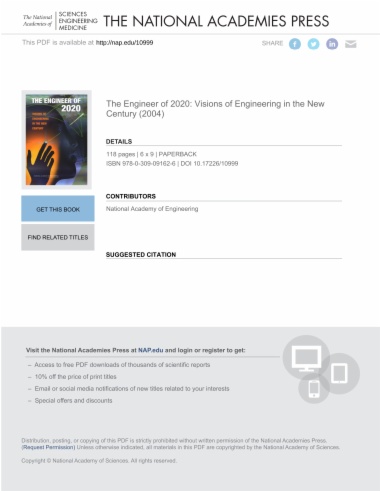

To enhance the nation's economic productivity and improve the quality of life worldwide, engineering education in the United States must anticipate and adapt to the dramatic changes of engineering practice. The Engineer of 2020 urges the engineering profession to recognize what engineers can build for the future through a wide range of leadership roles in industry, government, and academia—not just through technical jobs. Engineering schools should attract the best and brightest students and be open to new teaching and training approaches. With the appropriate education and training, the engineer of the future will be called upon to become a leader not only in business but also in nonprofit and government sectors.
The book finds that the next several decades will offer more opportunities for engineers, with exciting possibilities expected from nanotechnology, information technology, and bioengineering. Other engineering applications, such as transgenic food, technologies that affect personal privacy, and nuclear technologies, raise complex social and ethical challenges. Future engineers must be prepared to help the public consider and resolve these dilemmas along with challenges that will arise from new global competition, requiring thoughtful and concerted action if engineering in the United States is to retain its vibrancy and strength.